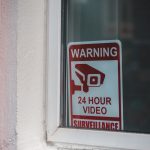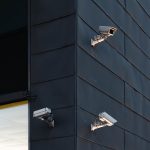The security of your home is important, like very… very important. Literally one of the places you should be safe no matter what. It is your last place of refuge, so let’s go over a couple of ways that you can make sure your home is as safe as possible.
You should be able to rely on your home security system to keep you safe. However, false alarms can be a major problem, causing unnecessary disruptions and even putting you at risk if they happen when you’re not home. This blog post will explore some of the most common causes of false alarms and what you can do to avoid them.
False Alarms: Common Causes and Solutions to Avoid Unnecessary Disruptions of Your Home Security System
- What is a false alarm, and what are its potential causes?
- Home security system features that can help reduce or eliminate false alarms
- How to properly use and maintain your home security system to avoid false alarms
- Solutions to common causes of false alarms
- Importance of avoiding false alarms from a home security system
- Conclusion
- Frequently Asked Questions
- What are some of the most common causes of false alarms?
- What steps can I take to prevent false alarms in my home security system?
- How can I troubleshoot a false alarm?
- How can I reduce the chances of a false alarm?
- What are some of the best ways to avoid false alarms?
What is a false alarm, and what are its potential causes?
A false alarm is an alarm system alert triggered without a legitimate threat. False alarms can occur for various reasons, including user error, mechanical malfunctions, weather-related incidents, or human intrusion. In the case of user error, this can include failing to properly enter the security code into the alarm panel when arming or disarming the system.
Mechanical malfunctions can result from dust, dirt or other material affecting sensitive components inside the keypad or motion sensors. Moreover, high winds could cause motion sensors to trigger unnecessarily, and changing temperatures can sometimes lead to issues with wiring and connections.
Additionally, deliberate human intrusion resulting in false alarms is unfortunately on the rise across many neighborhoods due to technological advances allowing intruders to bypass home security systems easily. If left unchecked, these false alarms could lead to a decreased sense of safety amongst residents and wasted resources from public safety personnel responding to non-emergencies.
Home security system features that can help reduce or eliminate false alarms
False alarms of home security systems can be a frequent nuisance and cause unwanted emergency services expenses. Fortunately, many home security systems offer features to help reduce or eliminate unnecessary false alarms.
These include adding sensors that only trigger when they detect certain movement patterns, such as those from a human being; sending notifications directly to your phone when the system is activated; two-way voice communication with a monitoring specialist for alerts sent in real-time; and automatic shut off periods to briefly disable the alarm system should users forget to enter their code. Each of these features helps protect your home from intruders and reduces false alarms by more accurately assessing which incidents need attention.
How to properly use and maintain your home security system to avoid false alarms

Home security systems are essential for residential and commercial properties to ensure the security of building occupants. However, as useful as these alarm systems are, false alarms are a common obstacle that can be both annoying and costly.
To avoid unnecessary false alarms, it is important to take the proper steps to ensure your home security system is used and maintained correctly. This includes notifying the alarm company of any changes in mobile phone numbers or new pets in the house, testing your alarm system regularly, making sure all locks are secure and locking windows and doors after arming the system.
When these simple steps are taken into consideration when using your home security system, you can remain confident that you will be notified only of actual threats to your safety instead of being disrupted by false alarms or activation errors.
Solutions to common causes of false alarms
False alarms in home security systems are common, often due to incorrect settings, user error, or poor battery life. Fortunately, straightforward solutions are available to help avoid these unnecessary false alarms. Homeowners and property managers should familiarize themselves with the system’s details and regularly schedule maintenance and quality assurance checks.
Moreover, selecting equipment with backup power supplies and motion sensors that can differentiate between humans and pets is more likely to result in reduced false alarms since the system will be less prone to unwanted triggering due to sudden changes in temperature or animals passing by. By following these simple steps, homeowners can ensure their security systems are effective without risking false alerts.
Importance of avoiding false alarms from a home security system
Home security systems are a cornerstone of home safety and security. However, false alarms can severely diminish their effectiveness. False alarms can waste valuable time and resources, create considerable inconvenience for neighbors and other community members, and – depending on local ordinances – may even lead to costly fines.
Therefore, homeowners must take extra care to prevent and avoid unnecessary false alarms from their security systems. Appropriate preventive measures – such as regularly checking whether the sensor or response time settings are accurate and ensuring the area surrounding your sensors is free from clutter or debris – should be undertaken to reduce the chances of false alarms being triggered.
These simple steps guarantee a more effective home security system that will positively contribute to personal safety and peace of mind.
Conclusion
Home security systems are a great way to deter burglars and keep your family safe. However, false alarms can be frustrating and costly. By understanding what causes false alarms and avoiding them, you can make the most of your home security system.
Remember to test your system regularly, change the batteries in your sensors, and stay up-to-date on software updates to prevent false alarms. With a little care, you can ensure that your home security system works when you need it the most.
Frequently Asked Questions
What are some of the most common causes of false alarms?
The most common causes of false alarms include incorrect sensor settings, user error, or poor battery life. Also, things like drafts, pets, and debris can set off sensors if they are not properly calibrated.
What steps can I take to prevent false alarms in my home security system?
To help prevent false alarms, make sure all locks are secure and lock windows and doors after arming the system. Also you should notify your security provider if you have new pets in the house, test your alarm system regularly, and select equipment with backup power supplies and motion sensors that can differentiate between humans and pets. Likewise, it is important to regularly check whether the sensor or response time settings are accurate and ensure the area surrounding your sensors is free from clutter or debris.
How can I troubleshoot a false alarm?
If your home security system produces false alarms, the first step is to check all locks and doors to ensure they are secure. You should also double-check any settings related to motion sensors or response time and ensure that the area around the sensors is free from clutter. Contact your security provider for further assistance if these steps do not resolve the issue.
How can I reduce the chances of a false alarm?
To reduce the chances of a false alarm, check all your sensors and motion detectors regularly for proper placement, obstructions, or the potential for false triggers. Make sure to enter the correct code when arming or disarming the system.
If you choose a security system with two-way communication technology, make sure that your system is equipped with a voice recognition feature, so it will only respond to users who are authorized to enter the home. Moreover, it is important to change the batteries in your sensors when needed and keep up-to-date on software updates.
What are some of the best ways to avoid false alarms?
The best ways to avoid false alarms are to ensure that all doors and windows are properly closed and locked before arming the system. You should also keep pets away from motion sensors, as they can cause them to trigger false alarms. Likewise, avoid placing furniture near any sensors, as this can disrupt their detection range. If you have an older security system, consider upgrading it to one with advanced features like two-way voice communication and instant notifications. Finally, regularly test your system to ensure it’s in proper working condition.








5 thoughts on “False Alarms: Common Causes and Solutions to Avoid Unnecessary Disruptions of Your Home Security System”